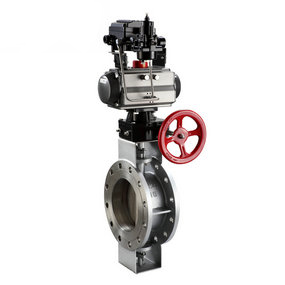How about the price of the schematic diagram of high-performance pneumatic butterfly valve? What is the ball valve damper used for?
Recently, many people on the Internet asked Jinnuo shock absorber manufacturer, what is the ball valve shock absorber used for? For what industry? Today, the Dongfeng shock absorber manufacturer will answer these questions one by one.
The ball valve damper is a vibration control installation with flexible response to displacement; Ball valve damper is mainly used for anti vibration of pipelines and equipment in nuclear power plants, thermal power plants, chemical plants, steel plants, etc. It is often used to control the vibration of pipeline system caused by fluid vibration excitation (such as fluid pulsation, two-phase flow, high-speed flow and aeolian vibration).
The ball valve damper can effectively control the vibration and swing of various frequencies, but it limits the normal thermal displacement of the pipeline at a certain level. The additional force generated by the ball valve damper on the pipeline shall be fully considered in the design.
In order to reduce the vibration and impact of the road surface mentioned above, the ball valve is required to absorb the energy of vibration and impact. The ball valve is an energy storage element in the suspension, but it is not enough to store it for the time being. It is also necessary to consume the energy that is bad for the comfort and dominant stability of the vehicle. It is the shock absorber's turn to exit, The working principle of the hydraulic shock absorber is that when the frame and the axle reciprocate in relative motion, and the piston reciprocates in the cylinder barrel, the oil in the shock absorber housing will repeatedly flow from one inner cavity to another through some narrow pores. At this time, the friction between the hole wall and the oil and the friction within the liquid molecules will constitute the damping force for vibration, The vibration energy of the body and frame is converted into heat energy, which is absorbed by the oil and shock absorber housing and then dispersed to the atmosphere. To put it simply, it converts kinetic energy into heat energy. If the shock absorber runs continuously on the test bench for several minutes, the outer wall of the shock absorber oil storage cylinder will become very hot, even hot.


